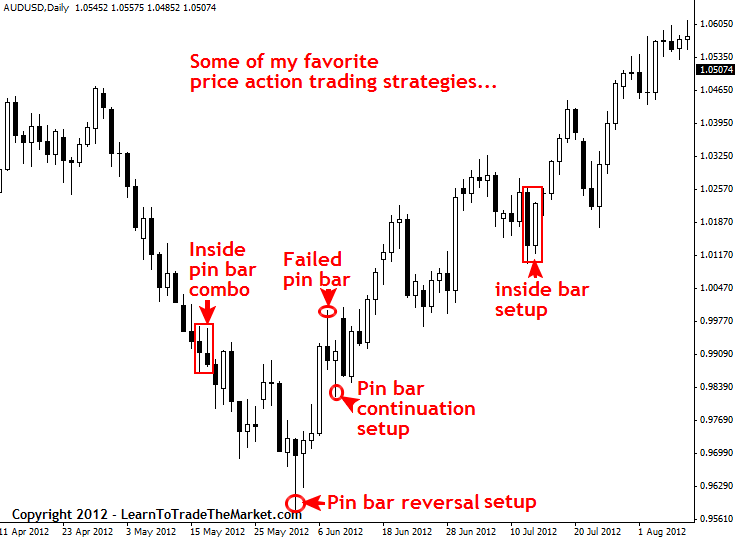Contents:


Established in 1973, The Depository Trust Company was created to alleviate the rising volumes of paperwork and the lack of security that developed after rapid growth in the volume of transactions in the U.S. securities industry in the late 1960s. National Securities Clearing Corporation provides many services to the financial industry. To keep pace with the demands of the industry and our clients, our dedicated employees work in a highly collaborative environment, as they consistently develop solutions to mitigate risk, create efficiencies and reduce costs. DTCC, through its subsidiaries, advances industry-leading solutions that help secure and shape the future growth and development of the global financial marketplace. A centralized source of information about the industry’s effort to accelerate the U.S. securities settlement cycle to T+1 in 2024.

The Depository Trust and Clearing Corporation is an American financial services company founded in 1999 that provides clearing and settlement services for the financial markets. When the DTCC was established in 1999, it combined the functions of the Depository Trust Company and the National Securities Clearing Corporation . DTCC’s Settlement Services, offered through DTC, reduce cost and risk and boost efficiencies in the marketplace by providing end-of-day net settlement obligations for clients resulting from trading activity in equities, debt and money market instruments.
DTC vs. NSCC
The clearinghouse then processes the exchange and earns allowance for the service. The DTCC ensures the smooth transfer of funds from the buyer to the seller. During the transaction, the broker is responsible for adjusting the client’s account appropriately. The entire cycle usually takes place the same day the transaction happens. The process is the same for retail investors, as it is for institutional investors.
- Managed Accounts Service, introduced in 2006, standardizes the exchange of account and investment information through a central gateway.
- Securities transactions processed by FICC’s Government Securities Division include Treasury bills, bonds, notes, zero-coupon securities, government agency securities, and inflation-indexed securities.
- Before 1946, the SEC had allowed for T+2 settlement , but by the early 1960s, this deadline had been lengthened to four days and then five.
- The architect of the industry response to the 1960s paperwork crisis, and of what is now DTCC, was William T. Dentzer Jr., a former US public official and intelligence community member.
Federal Reserve System, the DTC provides settlement services, asset servicing, and clearing services. Today, we stand at the center of global trading activity, processing trillions of dollars of securities transactions on a daily basis. DTC provides securities movements for NSCC’s net settlements, and settlement for institutional trades (which typically involve money and securities transfers between custodian banks and broker/dealers), as well as money market instruments. DTCC subsidiaries National Securities Clearing Corporation and Fixed Income Clearing Corporation deliver highly efficient clearing services across the U.S. equities and fixed income markets, reducing risk and cost for clients, while ensuring safety and reliability in the marketplace.
“William Dentzer Helped dtcc Unsnarl Its Paperwork; Former CIA operative, who died at age 91, led early clearinghouse for stock trades”. In 2010, the DTCC Board announced Donald F. Donahue would relinquish his dual role as Chairman & CEO, based on requests from U.S. regulators and following examples of other companies overseas. Robert Druskin was named DTCC Executive Chairman in 2010, while Donahue continued to serve as CEO. As of 2019, Michael Bodson was CEO under the supervision of an additional 20 members of its board of directors. Two board members are selected by “preferred shareholders” ICE and FINRA, while 14 are from international clearing agencies.
SIFMA OPS 2023 Featuring DTCC Speakers
DTCC white paper examines how climate-related financial risk, namely physical risk and transition risk, may impact financial market infrastructures. DTC brings efficiency to the securities industry by retaining custody of more than 1.4 million active securities issues valued at US$87.1 trillion, including securities issued in the US and more than 131 countries and territories. DTCC entered into a joint venture with the New York Stock Exchange known as New York Portfolio Clearing, that would allow “investors to combine cash and derivative positions in one clearinghouse to lower margin costs”. Federal Reserve System, a limited-purpose trust company under New York State banking law and a registered clearing agency with the U.S. The architect of the industry response to the 1960s paperwork crisis, and of what is now DTCC, was William T. Dentzer Jr., a former US public official and intelligence community member. Dentzer was the founder of DTC, and its Chairman & CEO from 1973 to 1994.
DTCC’s subsidiary, The Depository Trust Company , established in 1973, was created to reduce costs and provide clearing and settlement efficiencies by immobilizing securities and making “book-entry” changes to ownership of the securities. In 2011, DTCC settled the vast majority of securities transactions in the United States and close to $1.7 quadrillion in value worldwide, making it by far the highest financial value processor in the world. DTCC operates facilities in the New York metropolitan area, and at multiple locations in and outside the United States.
User-owned and directed, it automates, centralizes, standardizes, and streamlines processes in the capital markets. Through its subsidiaries, DTCC provides clearance, settlement, and information services for equities, corporate and municipal bonds, unit investment trusts, government and mortgage-backed securities, money market instruments, and over-the-counter derivatives. It also manages transactions between mutual funds and insurance carriers and their respective investors. NSCC also nets trades and payments among its participants, reducing the value of securities and payments that need to be exchanged by an average of 98% each day. The Depository Trust & Clearing Corporation is an American post-trade financial services company providing clearing and settlement services to the financial markets. It performs the exchange of securities on behalf of buyers and sellers and functions as a central securities depository by providing central custody of securities.
Delaware Technical Community College
Today, all physical shares of paper stock certificates are held by a separate entity, Cede and Company. In the late 1960s, with an unprecedented surge in trading leading to volumes of nearly 15 million shares a day on the NYSE in April 1968 , the paperwork burden became enormous. Stock certificates were left for weeks piled haphazardly on any level surface, including filing cabinets and tables.
DTCC Identifies How Enhanced Data Exchange and Management … – Fintech Finance
DTCC Identifies How Enhanced Data Exchange and Management ….
Posted: Thu, 19 Jan 2023 08:00:00 GMT [source]
For the most part, investors can still request their certificates, but this has several inconveniences, and most people do not, except for novelty value. In the securities industry, the settlement period is the amount of time between the trade date—when an order for a security is executed, and the settlement date— when the trade is final. Investopedia requires writers to use primary sources to support their work.
What Is the Depository Trust and Clearing Corporation (DTCC)?
The Depository Trust and Clearing Corporation is a user-owned cooperative that helps participants with clearing services of different asset classes. In a multilateral netting process, multiple parties arrange for transactions to be summed . All of this netting activity is centralized to reduce the amount of invoicing and payment settlements.
AtlasClear, Inc. and Quantum FinTech Acquisition Corporation … – Marketscreener.com
AtlasClear, Inc. and Quantum FinTech Acquisition Corporation ….
Posted: Fri, 05 May 2023 13:03:02 GMT [source]
It was deployed that year in the U.S. under CFTC supervision, and in 2013 in Australia under ASIC supervision, Hong Kong as an agent of HKMA, Japan under FSA supervision, and Singapore under MAS supervision. In November 2013, DTCC obtained a license from ESMA to operate its trade repository in the European Union, based in London and starting in February 2014, and in 2019 that service was extended to Switzerland under FINMA supervision. From 2018, DTCC built up its GTR infrastructure to also support securities financing transaction reporting in the European Union under the EU Securities Financing Transactions Regulation . In the wake of Brexit, DTCC created an EU entity based in Dublin, which ESMA registered as an EU trade repository in late 2020, which on 1 January 2021 took over part of the activity previously reported to the UK trade repository. In compliance with legislation in the individual jurisdictions, DTCC operates trade repositories under several legal entities across the world, but keeps the original vision of a globally integrated reporting utility.
DTCC Consulting Services
European Central Counterparty Limited used to be a European subsidiary of DTCC. Headquartered in London, EuroCCP is a UK-incorporated Recognised Clearing House regulated by the UK’s Financial Services Authority . In December 2019, EuroCCP announced it would be purchased by Cboe Global Markets. In 2008, The Clearing Corporation and The Depository Trust & Clearing Corporation announced CCorp members will benefit from CCorp’s netting and risk management processes, and will leverage the asset servicing capabilities of DTCC’s Trade Information Warehouse for credit default swaps . By January 1969, it was transferring 10,000 shares per day, and plans were made for it to be handling broker-to-broker transactions in 1,300 issues by March 1969. All the top New York banks were represented on the board, usually by their chairman.
FICC was created in 2003 to handle fixed income transaction processing, integrating the Government Securities Clearing Corporation and the Mortgage-Backed Securities Clearing Corporation. The Government Securities Division provides real-time trade matching , clearing, risk management, and netting for trades in U.S. government debt issues, including repurchase agreements or repos. Securities transactions processed by FICC’s Government Securities Division include Treasury bills, bonds, notes, zero-coupon securities, government agency securities, and inflation-indexed securities. The Mortgage-Backed Securities Division provides real-time automated and trade matching, trade confirmation, risk management, netting, and electronic pool notification to the mortgage-backed securities market. Participants in this market include mortgage originators, government-sponsored enterprises, registered broker-dealers, institutional investors, investment managers, mutual funds, commercial banks, insurance companies, and other financial institutions. DTCC was established in 1999 as a holding company to combine The Depository Trust Company and National Securities Clearing Corporation .
In 2019, DTCC rebranded its derivatives and trade repository businesses, including the GTR and TIW, as Repository and Derivatives Services . DTCC supported the Customer Protection and End User Relief Act (H.R. 4413; 113th Congress), arguing that it would “help ensure that regulators and the public continue to have access to a consolidated and accurate view of the global marketplace, including concentrations of risk and market exposure”. One problem was state laws requiring brokers to deliver certificates to investors. Eventually all the states were convinced that this notion was obsolete and changed their laws.
Asset Servicing, also offered through DTC, offers a broad range of services for underwriting, custody, corporate actions, dividend, proxy and reorganization services, as well as the electronic registration and transfer of securities. DTCC clearing services offered through its subsidiary, DTC, increases efficiencies in the market by reducing risks and providing settlement obligations to clients at the close of the day. DTC also offers a wide range of asset servicing for electronic registration and the transfer of services, corporate actions, and underwriting. The multilateral netting approach enables transactions without necessarily requiring multiple payment settlements and invoicing among the transacting parties. Currently, the corporation provides clearing and settlement services for every buyer and seller of securities. It helps minimize the value of payment by approximately 98% on a daily basis.
DTCC partners Kingfield to transform corporate actions claims process – Finextra
DTCC partners Kingfield to transform corporate actions claims process.
Posted: Wed, 27 Jul 2022 07:00:00 GMT [source]
DTCC Learning offers comprehensive, fast-track training for DTCC customers of financial services organizations who are looking to expand their expertise and abilities in using the post-trade processing products and services provided by DTCC’s subsidiaries. In 2006, GCA VS processed 899,000 corporate actions from 160 countries. Managed Accounts Service, introduced in 2006, standardizes the exchange of account and investment information through a central gateway.
These include white papers, government data, original reporting, and interviews with industry experts. We also reference original research from other reputable publishers where appropriate. You can learn more about the standards we follow in producing accurate, unbiased content in oureditorial policy. The DTCC settles the vast majority of securities transactions in the U.S. Settlement is an important step in the completion of securities transactions. Outlining pain points related to data exchange, data management, how key technologies can address these in the future, and considers hypotheses for the future.
The Depository Trust Company came into existence in 1973 to improve security and reduce the increasing volume of paperwork after the volume of securities transactions grew rapidly in the U.S. during the late 1960s. Previously, the exchange of securities took place in physical form, with hundreds of messengers carrying checks and certificates. Such an exchange of security certificates was inefficient, difficult, and expensive.
The National Securities Clearing Corporation , another subsidiary of the DTCC, provides clearing, settlement, risk management, and other financial services. Regulated by the Securities Exchange Commission , the NSCC also provides multilateral netting, whereby transactions among several parties are summed up centrally, rather than individually. Omgeo is a central information management and processing hub for broker-dealers, investment managers, and custodian banks. It provides post-trade, pre-settlement institutional trade management solutions for the securities clearance and settlement industry, processes over one million trades per day, and serves 6,000 investment managers, broker/dealers, and custodians in 42 countries. Omgeo was formed in 2001 as a joint venture between DTCC and Thomson Reuters combining various trade services previously provided by each of these organizations. In November 2013 DTCC bought back Thomson Reuters’ interest in the firm, so it is now wholly owned by DTCC.
To serve such purposes, the Central Certificate Service was formed in 1968 and the National Securities Clearing Corporation was established in 1976. Later, in 1999, DTC and NSCC were combined to form a holding company that came to be known as the Depository Trust and Clearing Corporation . The burden of paperwork became massive during the late 1960s when trading volumes on the New York Stock Exchange surged unexpectedly to 15 million shares per day. It resulted in stock certificates getting piled up unsystematically without being mailed or sometimes mailed to incorrect addresses. The size of the fee is proportional to the type of instrument under trade, the size of the transaction, and the amount of service required.








































